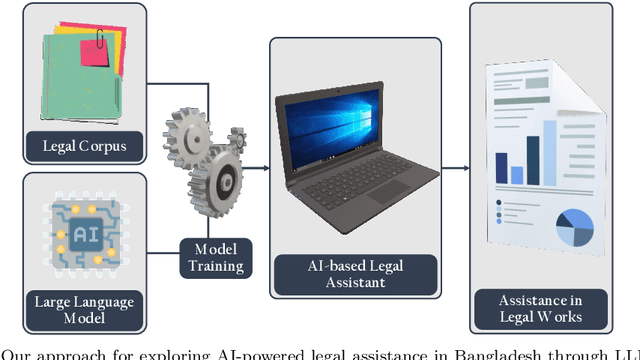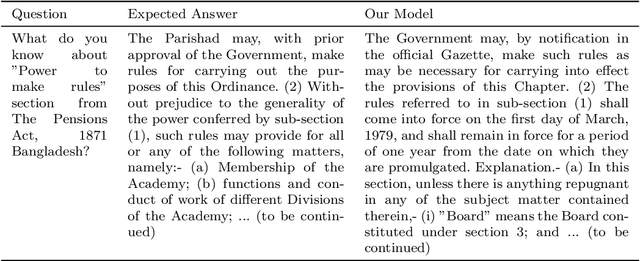Mst Rafia Islam
Balancing Power and Ethics: A Framework for Addressing Human Rights Concerns in Military AI
Nov 10, 2024Abstract:AI has made significant strides recently, leading to various applications in both civilian and military sectors. The military sees AI as a solution for developing more effective and faster technologies. While AI offers benefits like improved operational efficiency and precision targeting, it also raises serious ethical and legal concerns, particularly regarding human rights violations. Autonomous weapons that make decisions without human input can threaten the right to life and violate international humanitarian law. To address these issues, we propose a three-stage framework (Design, In Deployment, and During/After Use) for evaluating human rights concerns in the design, deployment, and use of military AI. Each phase includes multiple components that address various concerns specific to that phase, ranging from bias and regulatory issues to violations of International Humanitarian Law. By this framework, we aim to balance the advantages of AI in military operations with the need to protect human rights.
* Accepted for oral (only 3 papers are selected!) Harms and Risks of AI in the Military Workshop (HRAIM 2024) at Mila Quebec (https://www.harms-risks-ai-military.org/accepted-abstracts.html#:~:text=Balancing%20Power%20and%20Ethics)
Exploring Possibilities of AI-Powered Legal Assistance in Bangladesh through Large Language Modeling
Oct 22, 2024



Abstract:Purpose: Bangladesh's legal system struggles with major challenges like delays, complexity, high costs, and millions of unresolved cases, which deter many from pursuing legal action due to lack of knowledge or financial constraints. This research seeks to develop a specialized Large Language Model (LLM) to assist in the Bangladeshi legal system. Methods: We created UKIL-DB-EN, an English corpus of Bangladeshi legal documents, by collecting and scraping data on various legal acts. We fine-tuned the GPT-2 model on this dataset to develop GPT2-UKIL-EN, an LLM focused on providing legal assistance in English. Results: The model was rigorously evaluated using semantic assessments, including case studies supported by expert opinions. The evaluation provided promising results, demonstrating the potential for the model to assist in legal matters within Bangladesh. Conclusion: Our work represents the first structured effort toward building an AI-based legal assistant for Bangladesh. While the results are encouraging, further refinements are necessary to improve the model's accuracy, credibility, and safety. This is a significant step toward creating a legal AI capable of serving the needs of a population of 180 million.
Dhoroni: Exploring Bengali Climate Change and Environmental Views with a Multi-Perspective News Dataset and Natural Language Processing
Oct 22, 2024Abstract:Climate change poses critical challenges globally, disproportionately affecting low-income countries that often lack resources and linguistic representation on the international stage. Despite Bangladesh's status as one of the most vulnerable nations to climate impacts, research gaps persist in Bengali-language studies related to climate change and NLP. To address this disparity, we introduce Dhoroni, a novel Bengali (Bangla) climate change and environmental news dataset, comprising a 2300 annotated Bangla news articles, offering multiple perspectives such as political influence, scientific/statistical data, authenticity, stance detection, and stakeholder involvement. Furthermore, we present an in-depth exploratory analysis of Dhoroni and introduce BanglaBERT-Dhoroni family, a novel baseline model family for climate and environmental opinion detection in Bangla, fine-tuned on our dataset. This research contributes significantly to enhancing accessibility and analysis of climate discourse in Bengali (Bangla), addressing crucial communication and research gaps in climate-impacted regions like Bangladesh with 180 million people.
Exploring Bengali Religious Dialect Biases in Large Language Models with Evaluation Perspectives
Jul 25, 2024



Abstract:While Large Language Models (LLM) have created a massive technological impact in the past decade, allowing for human-enabled applications, they can produce output that contains stereotypes and biases, especially when using low-resource languages. This can be of great ethical concern when dealing with sensitive topics such as religion. As a means toward making LLMS more fair, we explore bias from a religious perspective in Bengali, focusing specifically on two main religious dialects: Hindu and Muslim-majority dialects. Here, we perform different experiments and audit showing the comparative analysis of different sentences using three commonly used LLMs: ChatGPT, Gemini, and Microsoft Copilot, pertaining to the Hindu and Muslim dialects of specific words and showcasing which ones catch the social biases and which do not. Furthermore, we analyze our findings and relate them to potential reasons and evaluation perspectives, considering their global impact with over 300 million speakers worldwide. With this work, we hope to establish the rigor for creating more fairness in LLMs, as these are widely used as creative writing agents.
 Add to Chrome
Add to Chrome Add to Firefox
Add to Firefox Add to Edge
Add to Edge